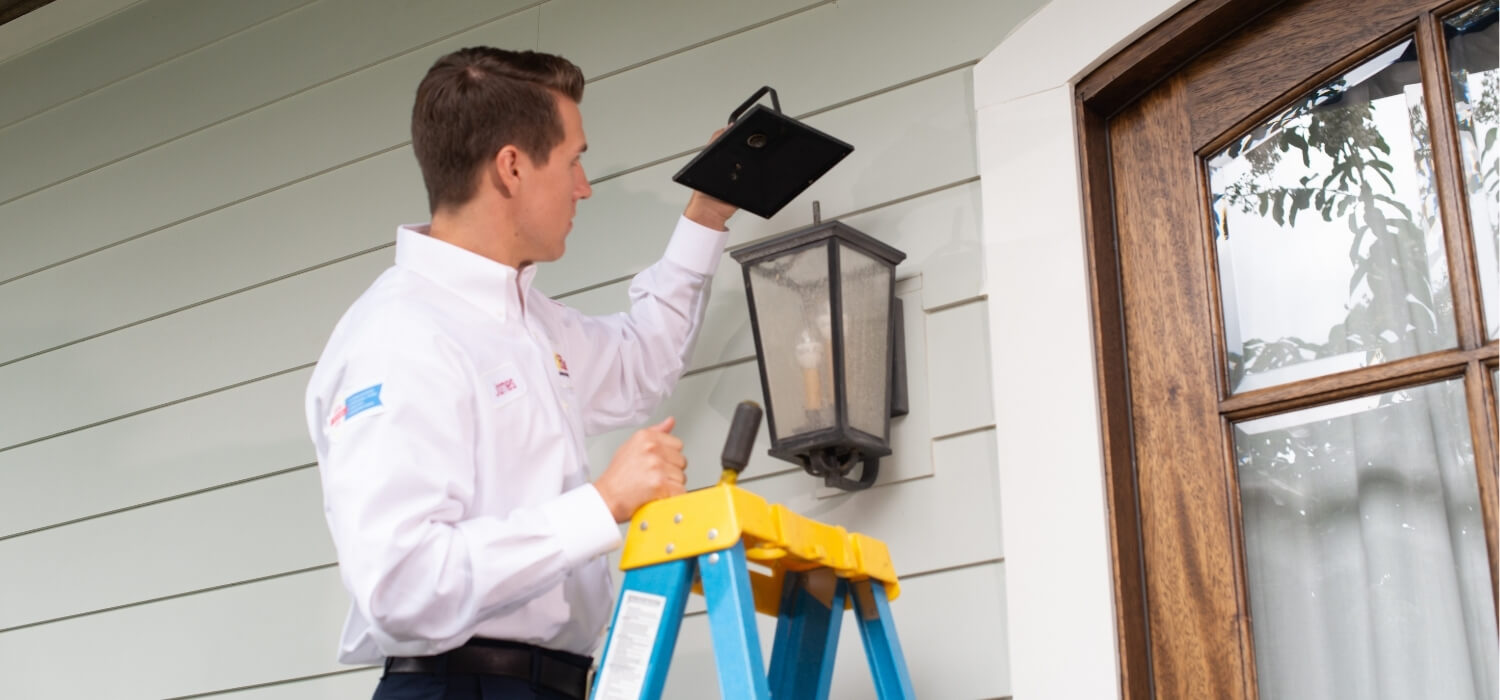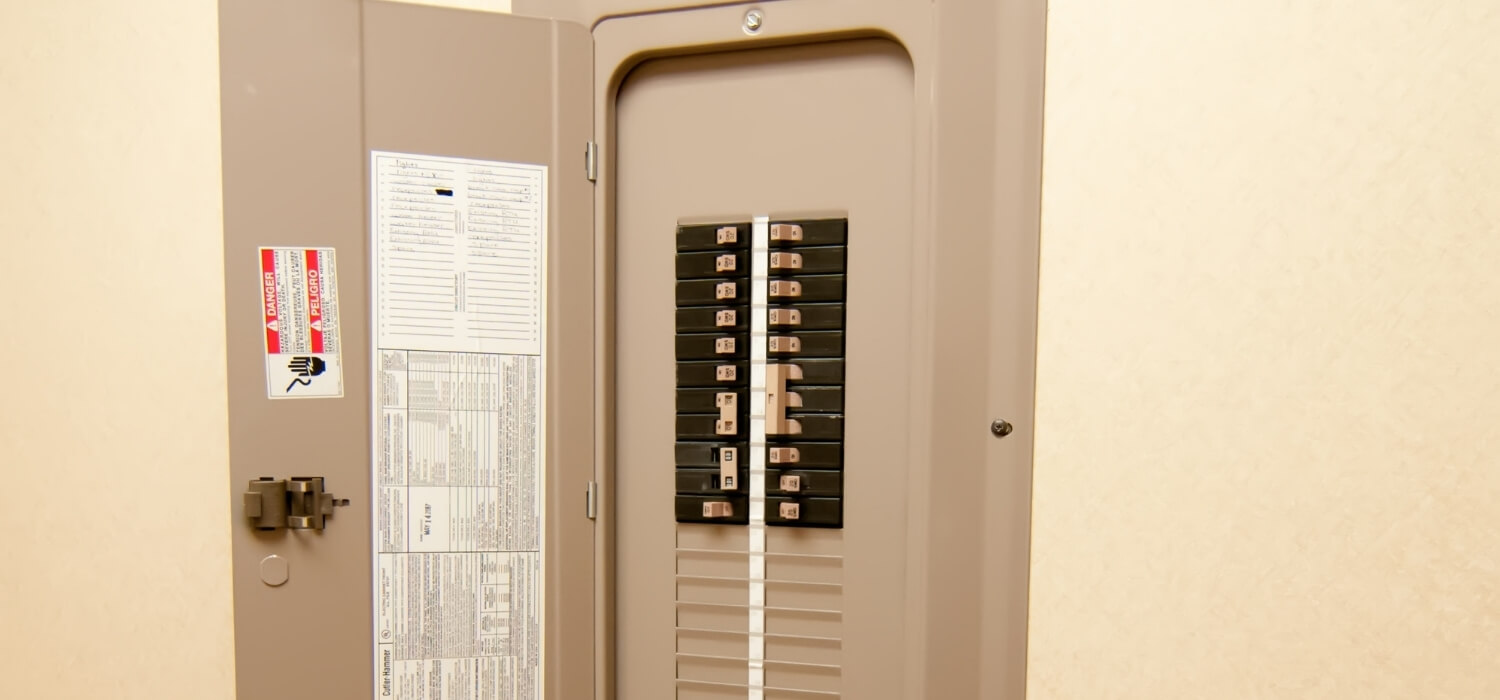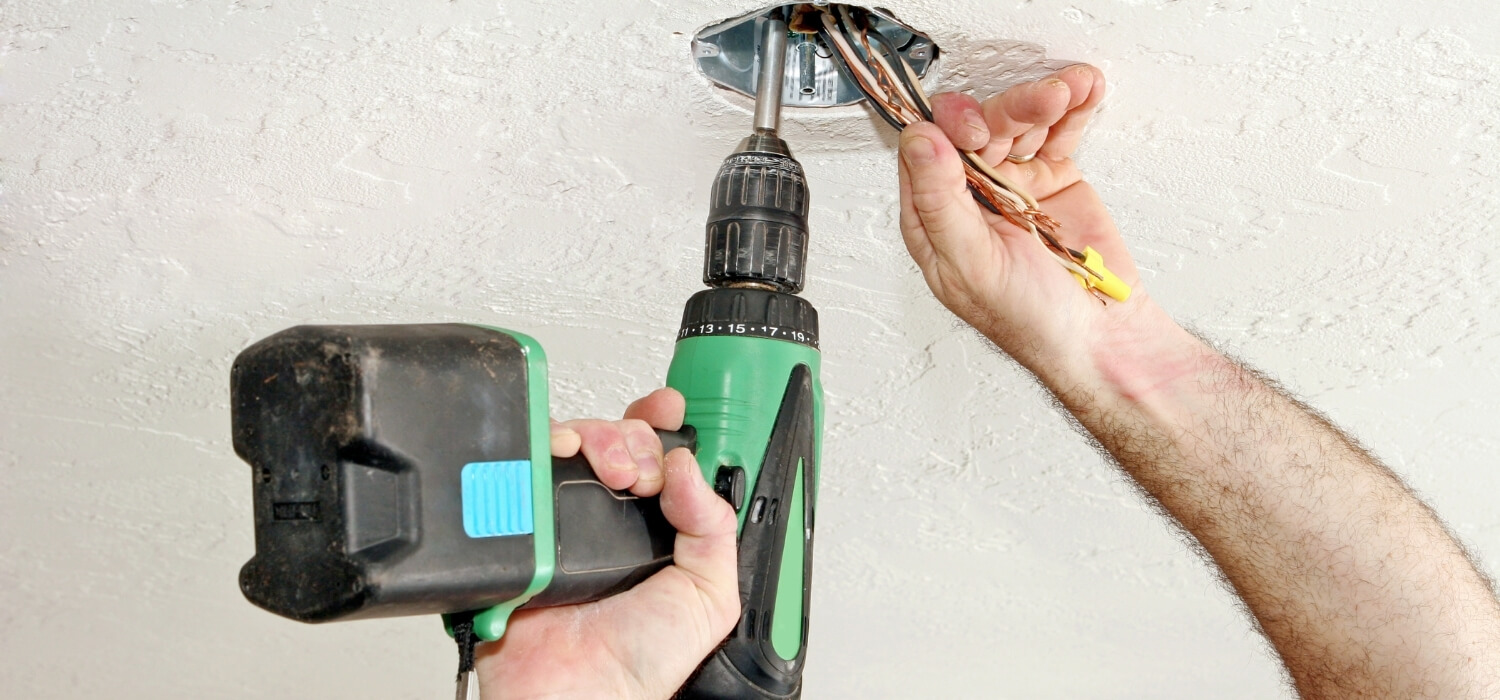Electrical Repair Near Me: What to Expect When Hiring a Professional
Enjoy reading the latest DIY articles and saving money?
Receive our latest helpful hints, tricks and savings, directly to your inbox.
Posted September 25, 2020
Electrical services are not something you need every day or even every year. It is probably not a topic you think a lot about. So trying to figure out what to look for in an electrician can feel overwhelming. Electrical repair is tedious and potentially dangerous. You may be uncertain of the scope of a project or the severity of a problem. It may be unclear if you need a licensed professional at all.
The information below will help you better make these determinations. The most important thing is having peace of mind that your project is completed properly and that your home or business is safe and secure.
Know When to Hire a Professional

There are several reasons to hire a professional electrician. You may be handy enough to complete many home projects on your own. But dealing with electrical current can present challenges and dangers that are best left up to the experts.
There are at least 30,000 electrical shock incidents every year in the United States, including about 1,000 deaths. And approximately 5 percent of all burn unit admissions across the nation result from electrical failure.
The amount of voltage running through most wires in your home is enough to cause serious injury or worse. It is not worth jeopardizing your health simply to save a few bucks.
Besides the risk of injury, you could cause thousands of dollars in damage to your home or office. In 2018, approximately 25,700 residential fires associated with electrical malfunction were reported. An estimated $1.2 in damages resulted from these incidents.
Even electrical tasks that seem straightforward or simple could have unseen risks. Improperly designed circuits can deliver excess amperage and damage electronic appliances. Over time, wiring can deteriorate. Outlets or other equipment that appear to be safe could have been installed incorrectly.
A licensed electrician can identify these problems and help you avoid issues down the road. Attempting to do this work on your own could cause damage to your equipment, appliances, or building infrastructure.
Many household projects do not require permitting or inspection. Electrical work does. An added bonus of hiring a professional is not having to deal with the approval process. And if a project fails to pass inspection, it is on the electrician to make it right.
Electrical repair work can be tedious and time-consuming. It is imperative to use the correct materials and proper equipment to get the job done well. This requires time and planning. Contracting the work out to someone who knows what they are doing can allow you to spend time on other, more important things.
What Projects Need Electrical Repair?

Damage to electrical systems can result from many causes. Some common ones include water, rodents, or old age. A good rule-of-thumb is to replace electrical equipment every 20 years.
There are some obvious reasons to call a licensed electrician, like outlets not working, a circuit breaker that frequently trips, or lights that keep flickering. Do not take these malfunctions lightly. It could be a sign of a more serious matter.
There are also some less obvious reasons to contact an electrician. For instance, many older homes have two-prong receptacles in their outlets. This may seem like a simple annoyance, but it could be an indication that your home is not properly grounded, which is a serious safety concern.
If your home was built between 1965 and 1975, it likely has aluminum wiring. These are notorious for overheating and causing fires. Aluminum wire expands much more than other wire, like copper. This can result in loose connections. Also, unlike other metals, rust on an aluminum wire can interfere with the electrical current.
If you are planning to sell your home, you may want an electrician to examine the wiring, outlets, circuit breaker, or and other electrical components of the home. This can ensure it will pass inspection.
Additional Services Your Electrician Can Provide

Although electrical repair work is very specific, there are many services your electrician can provide that you may not be aware of.
Smoke and Carbon Monoxide Detectors
If you have battery-powered smoke or carbon monoxide detectors, consider the advantages of shifting to wired ones. The most obvious improvement is a more reliable source of power. Also, an interconnected system of alarms can alert emergency response personnel of a problem, even if no one is home.
Most electricians can service or provide replacements for existing smoke detectors. They also should be able to tell you whether your home has the appropriate number of detectors and if they are in the proper location.
Circuit Breaker Panel
Circuit breaker panels––also known as panelboards, breaker boxes, or fuse boxes––are the main component that distributes electrical power throughout your building. They can malfunction or become outdated, and cause serious problems for your electrical system. An electrician will be able to repair or replace your circuit breaker panel if needed.
Electrical Upgrades
Electricians can offer advice and the availability of services for outdated electrical equipment. Old outlets can become loose and difficult to use. Consider replacing them with ones equipped with USB plugins. This can increase safety and add a modern style to your home or office.
Have you ever seen outlets with those little buttons between receptacles? Those are called ground-fault circuit interrupters (GFCI). They function like mini circuit breakers, cutting off the electric current in as little as one-fortieth of a second. This keeps the electricity from traveling through the person using the outlet, which could cause serious injuries or even death.
If your home is older and lacks GFCIs, speak with a technician about proper places to install these. For a small cost, you can increase safety for your devices and the people using them.
Smart thermostats can learn heating and cooling preferences, use your cell phone to know if you are home or away, and allow you to view energy usage. And they can lower your electric bill by adjusting the thermostat based on your lifestyle or peak energy usage hours.
Smart devices are available for water, smoke, and carbon monoxide detection, as well as home security. These gadgets can be complicated to install. A certified technician can make sure it is done properly.
Home Generators
A standby generator can supply backup power to your home in the event of a power outage. They range in size from those that can power your entire home to ones that can run a handful of appliances and lights.
These are distinct from portable generators that require connection during each power outage. Standby generators provide power-on-demand and are ready to go whenever an emergency happens. They can be vital for running medical-related equipment or things like sump pumps that prevent flooding. An electrician will be able to tell you what device is right for you.
Whole-Home Surge Protection
Most people rely on power strips to protect their electronic devices. But not all power strips actually protect against electrical surges.
In 2019, approximately $920 million was paid out in more than 76,000 lightning damage claims Whole-home surge protection ensures that your devices are protected throughout your entire home or business.
Indoor and Outdoor Lighting
Most people think of an electrician when their lights go out entirely, but they are the perfect people to call if you are looking for any kind of light installation. This can include anything from interior lighting to landscape and security lighting.
Qualifications and Certifications of Electrical Repairs

Reputable companies only hire licensed technicians. You can find information about licensed technicians through your local state or municipality, which will keep records of these certifications.
All states require licensing for anyone performing electrical repair work. Electricians have to complete a number of hours of classroom learning, including exams. They are required to work as an apprentice under a certified electrician for four years in order to receive their “journeyman license.”
After they complete two years of hands-on training as a journeyman electrician, they can become a master electrician. At this point, they can work independently and without supervision.
(Note that these are the minimum requirements. Some states require longer apprenticeships and or journeyman supervision periods.)
A licensed electrician will know the National Electrical Code. This lays out standards for safe electrical wiring and equipment installation set by the National Fire Protection Association. There also are specific requirements in each state.
Electricians must carry general liability insurance, as well as workers’ compensation insurance if they have any employees. Prominent companies will conduct background checks and require ongoing training for their employees.
As technology continues to change, qualified electricians must meet new requirements. Continuing education is key to this. A company that prioritizes this for its workforce is one that will be on the cutting edge of product development.
It is appropriate to ask an electrician for references. Talk to former customers, and see what people are saying online. Even if an electrician’s advertisement looks enticing, do your homework. You may also inquire about how long the company has been in business.
It is also okay to ask what kind of experience a licensed technician has. The electrical industry is broad, and jobs have varying levels of complexity. But a prominent electrician will have experience in a variety of installation and repair fields.
It is not uncommon for electricians to specialize in particular kinds of work. However, some companies employ personnel to handle any level of electrical repair work, from home renovation to commercial installations.
Cost

Pricing for electrical repair work will vary by state and region. Most electricians will provide a free quote on a major project. But be sure to ask if there are any fees associated with consultations.
It is a good idea to meet with the electrician in-person before an estimate on a big project. Quotes should be in writing and include a detailed list of project tasks and associated costs.
For simple tasks, the electrician may be able to provide you with pricing estimates. Be sure to have some basic information available for them, such as how many outlets are in a room or how much voltage is necessary to power a new appliance. The electrician may be able to know a lot just from the age of your home.
Most companies will have some kind of warranty guarantee. This can be important for potential down-the-road costs.
Many electricians give discounts to returning customers through “loyalty” programs. And some companies will offer special financing for major projects, including zero percent interest.
If you have other projects at your home or office, it may be worth seeking out a company that can work on all of them. They may offer comprehensive maintenance plans that include services such as HVAC and plumbing. These programs can yield major savings across-the-board, by including things like:
- Regular checkups
- Priority service
- Fee emergency service
- Discounted maintenance
- Discounts on repairs
Efficiency is a good reason to consider these types of plans as well. Systems operating at peak capacity can go a long way to saving energy, in turn reducing your utility bill.
A Few Electrical Repair Tips on Keeping Costs Down

In evaluating quotes from several different companies, it is tempting to simply go with the cheapest. But be sure to compare “apples to apples” so that you know what you are paying for the service you are receiving.
If it is not an emergency, agree to have a technician come out during normal business hours, as opposed to evenings or weekends.
It is okay to ask questions. Even if you are not an expert, it is fine to inquire as to the basic tasks that are being performed in your home or office, and what the associated costs are. It is a great policy to ask for potential energy savings resulting from the work.
It is important for you to know that most electricians are limited to work directly associated with the electrical repair needs of the home or business. For instance, if a wall or flooring requires tearing out to gain access to wiring, the technician is not equipped to replace the dismantled structure.
Consider allowing the electrician to select replacement parts for you. Purchasing parts for a home project could save you money, but there are a few things unique to electrical repair work to consider:
- The parts needed for an electrical project are very specific. Not any old wire or cable will suffice. A qualified electrician will know exactly what parts to get.
- An electrician will be able to better identify lower quality products and suggest alternatives.
- The service provider, not you, would be responsible for defects in any of the installed products.
Also, an electrician most likely will get a contractor’s discount, so the savings from purchasing supplies on your own could be negligible.
Do Not Wait Until It Is Too Late

Electrical repair can seem like a lot, but identifying the proper professional to address your problem or project is the most important thing. Do not let the scope of your needs or uncertainty about the details intimidate you.
You have nothing to lose––and everything to gain––by reaching out to a licensed technician today. You can improve your home or business while saving money and eliminating headaches down the road.
 Daily Promotion
Daily Promotion
Save up to $1,500 off Whole Home Water Filtration System
Save up to $1,500 off Whole Home Water Filtration System!
Get Promotion